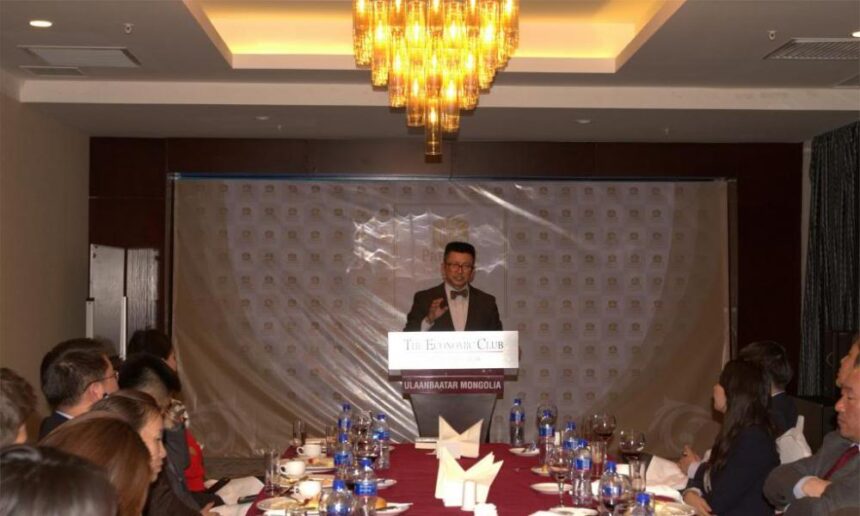On Thursday April 3rd, The Economic Club of Ulaanbaatar held its monthly meeting. The event was held at the Tuushin Best Western Hotel, with key speakers Jargalsaikhan (economist) and Ganbold.Da (Oyu Tolgoi Board Member). The purpose of the club is to act as a platform for Mongolia’s top business people, economists and politicians to discuss Mongolia’s economic issues.
Jargalsaikhan, a well-known Mongolian economist, spoke about how the Government of Mongolia is increasingly getting involved in businesses and the private sector, which is interrupting efficiency and productivity of the economy. Jargalsaikhan also talked about concerns that the government is not transparent in their loans and hand-outs that they give to state owned enterprises and private small and medium sized enterprises. Consistent reporting of where the money goes and how it is being spent is important so we can measure the effectiveness of the loans and to lower corruption.
Ganbold, a board member of Oyu Tolgoi, spoke about Mongolia’s economic and political history and how it has an impact on today’s governance. Ganbold delivered a powerful speech on recognizing that the government has had issues, but that we should also acknowledge how far the government has come in recent years. An issue that Ganbold and Jargalsaikhan both touched on is that the government is giving out too many hand-outs, which is hurting the healthy competition amongst businesses and people.
Following the speeches, the attendees and members had an opportunity to pose questions and discuss these important issues. One question sparked a particularly interesting debate about income disparity in Mongolia. It is a known fact that Mongolia has a very small middle class and that the rich are increasingly becoming relatively wealthier compared to the poor. Jargalsaikhan, a free market economist, believes that the key to economic development and to a higher standard of living is through free enterprise and competition. The rich are an important player in this role, and as the rich get richer, they will be able to employ more people and pay higher salaries to the poor. The counter argument to this is that countries with high-income equality tend to grow faster than countries with lower income equality, as reported by the IMF last month.
The Economic Club of Ulaanbaatar meetings will continue to be held every month. If you are interested in becoming a member and joining the discussions, please contact 89048684, for more information. www.econclubub.mn







